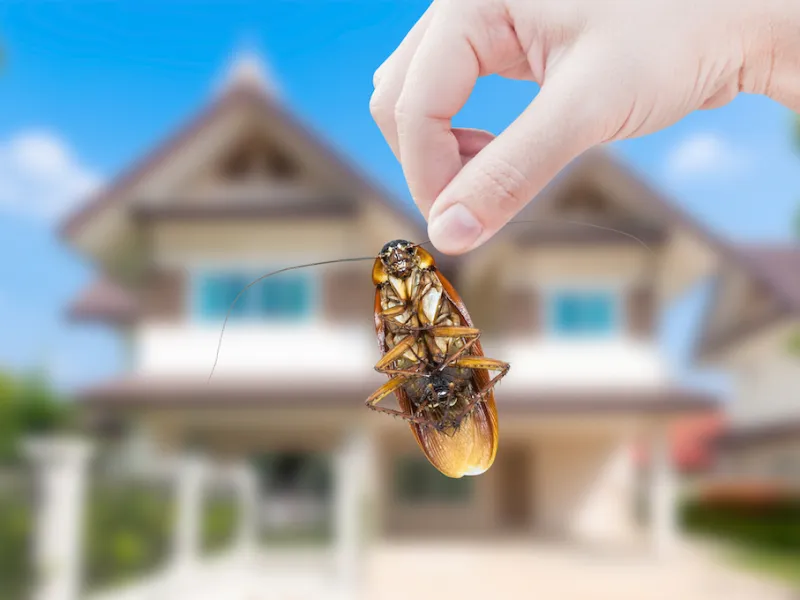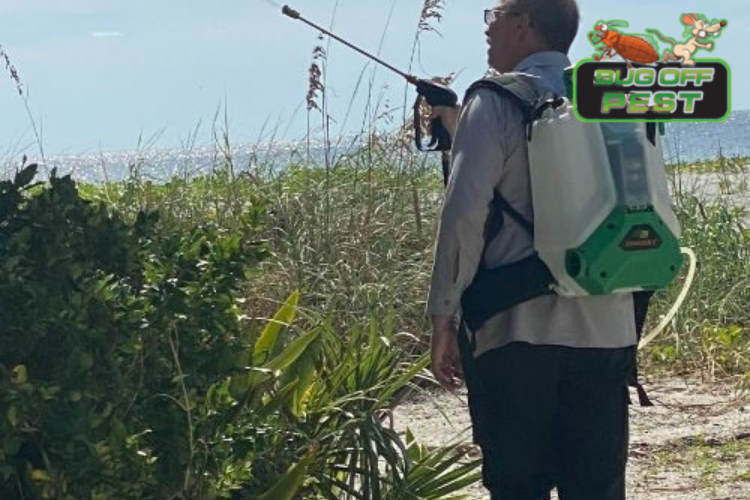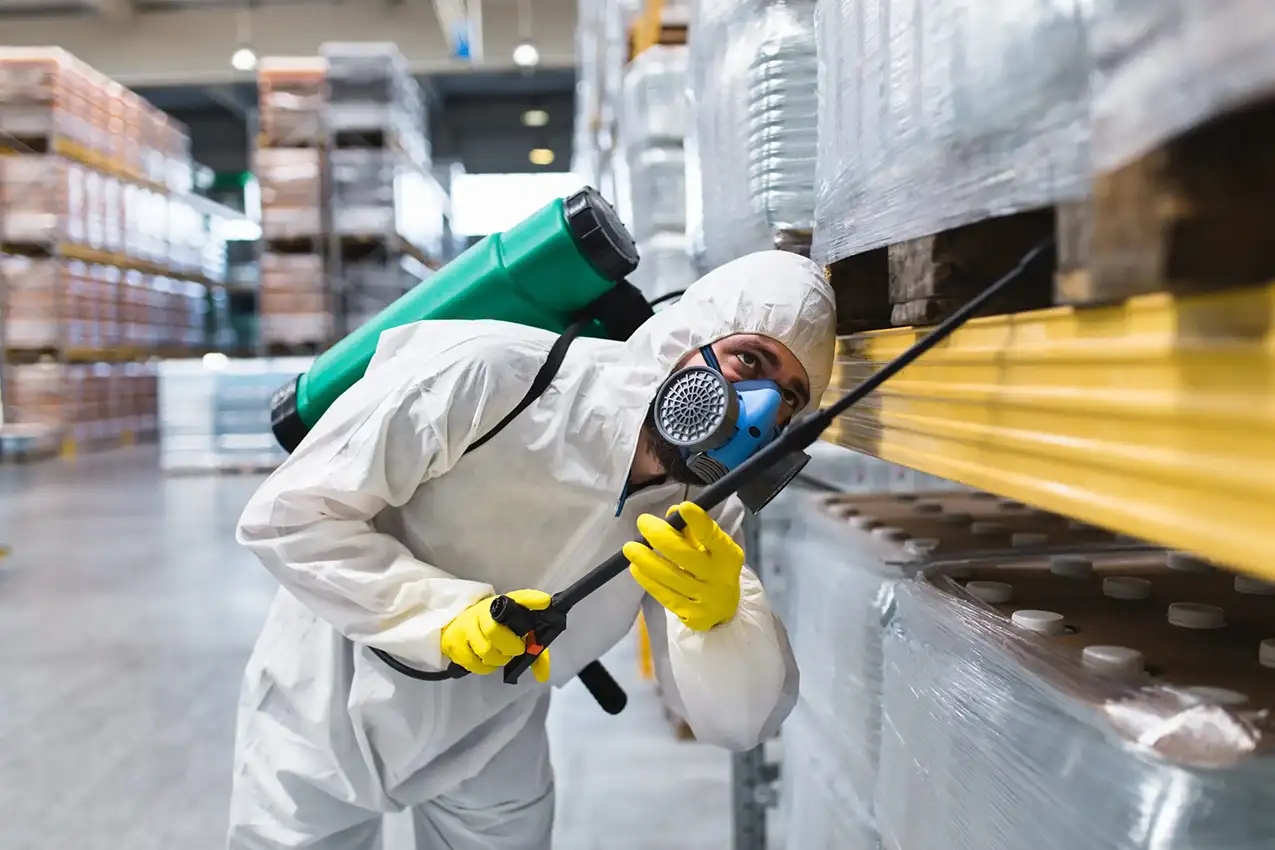Dependable Rodent Control Port Charlotte to Keep Your House Free from Pests
Uncover the Importance of Parasite Control in Preserving a Healthy And Balanced Atmosphere and Treatment Strategies

The Duty of Bugs in Communities
Pests, commonly seen only as problems, play a complex role in environments that is important for keeping environmental equilibrium. They contribute dramatically to various eco-friendly procedures, including pollination, vitamins and mineral biking, and parasite control. Lots of insect varieties, such as butterflies and , are essential pollinators for a wide range of plants, which in turn supports biodiversity and food manufacturing.
In addition, parasites act as prey for various killers, creating a critical link in food webs. This interdependence makes sure the survival of numerous varieties and aids manage populaces within ecological communities (Termite treatment Port Charlotte). Decomposer bugs, such as specific beetles and fungi, are crucial in damaging down natural issue, therefore enhancing soil and helping with nutrient recycling.
Conversely, while parasites can be useful, their overpopulation or invasion right into non-native atmospheres might interfere with these eco-friendly functions. This complexity underscores the significance of understanding pest characteristics, as efficient insect management methods should think about both their environmental roles and possible influence on human activities. Balancing pest visibility while decreasing injury is essential for maintaining the stability of ecological communities and making sure agricultural performance.
Health And Wellness Dangers Related To Insects
The presence of bugs in various environments expands beyond their eco-friendly functions, as they likewise pose substantial health and wellness risks to pets and humans. Many insects, including rats, insects, and bloodsuckers, are service providers of illness that can have serious health and wellness implications. For instance, rodents are understood to send hantavirus and leptospirosis, both of which can result in extreme respiratory system and renal concerns, respectively.
Bugs such as insects and ticks are infamous for spreading vector-borne illness like jungle fever, dengue fever, and Lyme illness. These illnesses can lead to high morbidity and death prices, specifically in vulnerable populations. Furthermore, bugs like roaches and bedbugs can intensify allergies and asthma, adding to respiratory system problems in individuals, specifically those with pre-existing problems.
Furthermore, the presence of insects can result in mental stress and pain, affecting general wellness. Contamination of food and surface areas by bug droppings and continues to be can bring about foodborne ailments, highlighting the significance of maintaining sanitary conditions. As a result, comprehending the health and wellness dangers connected with bugs is vital in recognizing the requirement of effective pest management strategies to safeguard animal and human health and wellness.

Benefits of Effective Pest Control
Efficient insect control is necessary for keeping a secure and healthy and balanced setting, as it continually mitigates the numerous risks connected with pest infestations. One of the primary benefits of effective pest management is the reduction of health and wellness risks. Insects such as insects, roaches, and rats are vectors for conditions that can affect both pet dogs and human beings. By managing these populations, the possibility of disease transmission is dramatically lowered.
In addition, effective parasite control safeguards residential property and frameworks from damage. Several bugs, like termites and carpenter ants, can create substantial architectural damage that might need pricey repair services. By proactively managing these homeowners, invasions and organizations can protect their investments.
An additional significant advantage is the enhancement of total find lifestyle. A pest-free setting adds to mental wellness and minimizes stress and anxiety associated with invasions. Moreover, reliable insect control cultivates a safer atmosphere for pets and children, making sure that homes continue to be sanctuaries devoid of dangerous chemicals and disease-causing microorganisms.
Common Pest Control Techniques

In the world of bug management, various strategies are utilized to combat problems efficiently. These strategies can be extensively categorized into 3 main strategies: cultural, mechanical, and chemical controls.
Social control includes modifying techniques to reduce parasite facility, survival, and reproduction. This may consist of plant turning, appropriate sanitation, and environment adjustment, which collectively develop an environment less for pest expansion.
Mechanical control employs physical techniques to get rid of bugs (Termite treatment Port Charlotte). Strategies such as vacuums, traps, and barriers are commonly used to directly remove pests from an area. This approach is especially effective for managing rodents and insects without the use of dangerous chemicals
Chemical control entails the application of chemicals to handle insects. These compounds can be categorized into pesticides, herbicides, and fungicides, each targeting certain kinds of bugs. It is important to utilize these chemicals judiciously, sticking to safety and security guidelines and regulations to minimize possible damage to non-target types and the environment.
Each pest control strategy has its limitations and benefits, and frequently, an integrated strategy incorporating several methods generates the ideal lead to maintaining a pest-free setting.
Lasting Insect Monitoring Practices
Lasting pest monitoring methods include a series of techniques made to lessen environmental impact while properly regulating insect populations. These techniques prioritize making use of eco friendly methods over chemical pesticides, consequently decreasing the threat of harm to non-target varieties, including beneficial bugs, wild animals, and people.
Integrated Pest Administration (IPM) is a cornerstone of sustainable techniques, combining organic, social, mechanical, and chemical strategies to take care of bugs. For example, organic control entails introducing all-natural killers or parasites to reduce bug populations. Social practices, such as crop turning and polyculture, disrupt pest life cycles and boost ecosystem durability.
Mechanical techniques, such as barriers or traps, can successfully prevent insect gain access to without chemical treatment. In addition, keeping healthy environments with correct dirt monitoring, plant health, and biodiversity can naturally reduce insect problems.
Education and learning and recognition are vital components, empowering individuals and communities to acknowledge the original source insect dangers early and carry out preventative steps. Termite treatment Port Charlotte. By cultivating an all natural approach that stabilizes parasite control with eco-friendly honesty, lasting parasite monitoring techniques not just secure plants and frameworks however likewise contribute more info here to a healthier setting for future generations
Verdict

Recognizing the health and wellness risks linked with insects is essential in identifying the requirement of effective bug management methods to safeguard animal and human health and wellness.
Effective bug control is vital for keeping a risk-free and healthy and balanced environment, as it continually reduces the many dangers linked with pest invasions.Integrated Pest Administration (IPM) is a keystone of sustainable methods, incorporating biological, social, mechanical, and chemical tactics to handle bugs. By understanding the function of parasites, recognizing connected wellness risks, and utilizing varied treatment techniques, a lasting strategy to pest management can be accomplished. Integrated Parasite Administration (IPM) stresses a holistic approach that alleviates injury to advantageous microorganisms while properly regulating insect populaces.